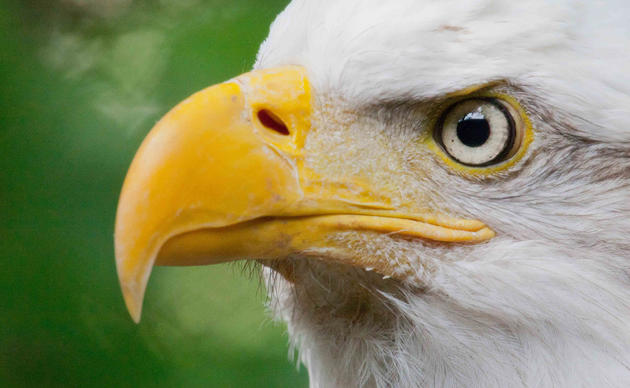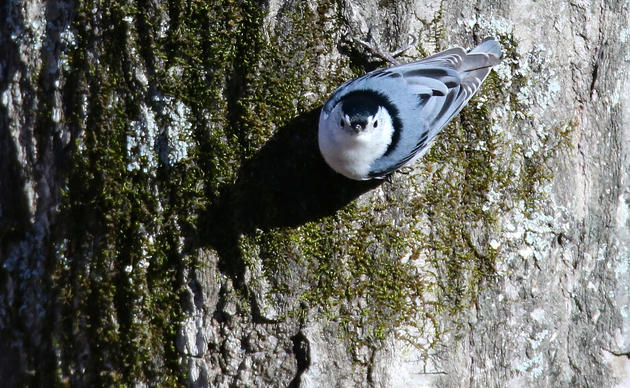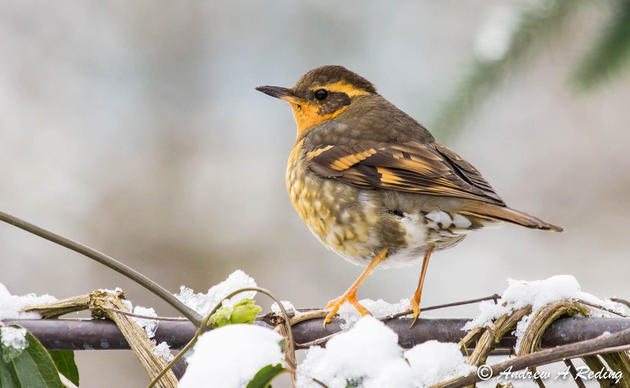WASHINGTON (October 20, 2020) – Today, House Natural Resources Committee Chairman Raúl Grijalva and Select Committee on the Climate Crisis Chairwoman Kathy Castor introduced the Ocean-Based Climate Solutions Act. This sweeping, 300-page bill calls for immediate climate action to protect the communities, economies, and birds and other wildlife that rely on a healthy ocean and coast.
“Whether you’re a birdwatcher who’s witnessed the loss of seabirds like Tufted Puffins, or someone whose livelihood depends on healthy oceans, climate change puts our way of life—and the lives of birds, fish, and wildlife—at risk,” said Deborah Jensen, executive director of Audubon Washington. “This bill will put Washington’s ocean-based industries to work to promote ecosystem health while reducing the harmful effects of climate change.”
This is the first piece of legislation that advances comprehensive solutions for addressing climate threats to our oceans and coasts and for tapping these important resources in our efforts to fight the climate crisis. The bill will protect critical bird habitats by expanding the Coastal Barrier Resources System, and setting national goals for wind energy development and protecting 30 percent of the ocean by 2030. It will also help coastal communities and fishing industries prepare for and adapt to climate disasters, authorizes $3 billion to restore degraded wetlands, oyster reefs, and other coastal areas, and will explore the ability of those coastal habitats to store carbon pollution.
“Seabirds and shorebirds are in peril—climate change is driving away the fish they eat, swallowing up their habitats under sea-level rise, and putting everyone on the coast at risk,” said Sarah Greenberger, interim chief conservation officer for the National Audubon Society. “This bill is the most comprehensive answer to the litany of threats that people and birds face on our coasts.”
This bill is a follow-up to the reports recently released by both the House and Senate Committees on the Climate Crisis, outlining how climate change is negatively affecting the ocean and coasts at an accelerating rate. Without action, the impacts of climate change are predicted to only get more severe and irreversible. Sea-level rise and more intense storms are increasingly threatening coastal communities that are home to almost 40 percent of the U.S. population.
Climate change is also threatening the survival of birds and other wildlife. In North America alone, we’ve seen a 70-percent decline in shorebird and seabird populations over the last 50 years. And Audubon’s Survival by Degrees report found that we could lose two-thirds of North American birds to extinction if the planet continues to warm at its current pace. Limiting warming to 1.5 degree Celsius would give 76 percent of at-risk bird species a significantly improved chance of survival, including imperiled sea- and shorebirds like the Common Murre and Piping Plover.
###
About Audubon Washington
Established in 1981, Audubon Washington works statewide with its 25 independent chapters and 35,000 members on the conservation of the sagebrush shrub steppe ecosystem in Eastern Washington, protection of coastal estuaries, and actions that address climate change, the number one threat to birds today. Through the Seward Park Audubon Center, it provides science, nature and environmental education programs for youth and families. Learn more at wa.audubon.org and on Twitter at @audubonWA.
About the National Audubon Society
The National Audubon Society protects birds and the places they need, today and tomorrow. Audubon works throughout the Americas using science, advocacy, education, and on-the-ground conservation. State programs, nature centers, chapters, and partners give Audubon an unparalleled wingspan that reaches millions of people each year to inform, inspire, and unite diverse communities in conservation action. A nonprofit conservation organization since 1905, Audubon believes in a world in which people and wildlife thrive. Learn more at www.audubon.org and on Facebook, Twitter and Instagram at @audubonsociety.
Contact: Rachel Guillory, National Audubon Society, rachel.guillory@audubon.org, 504.708.5873




